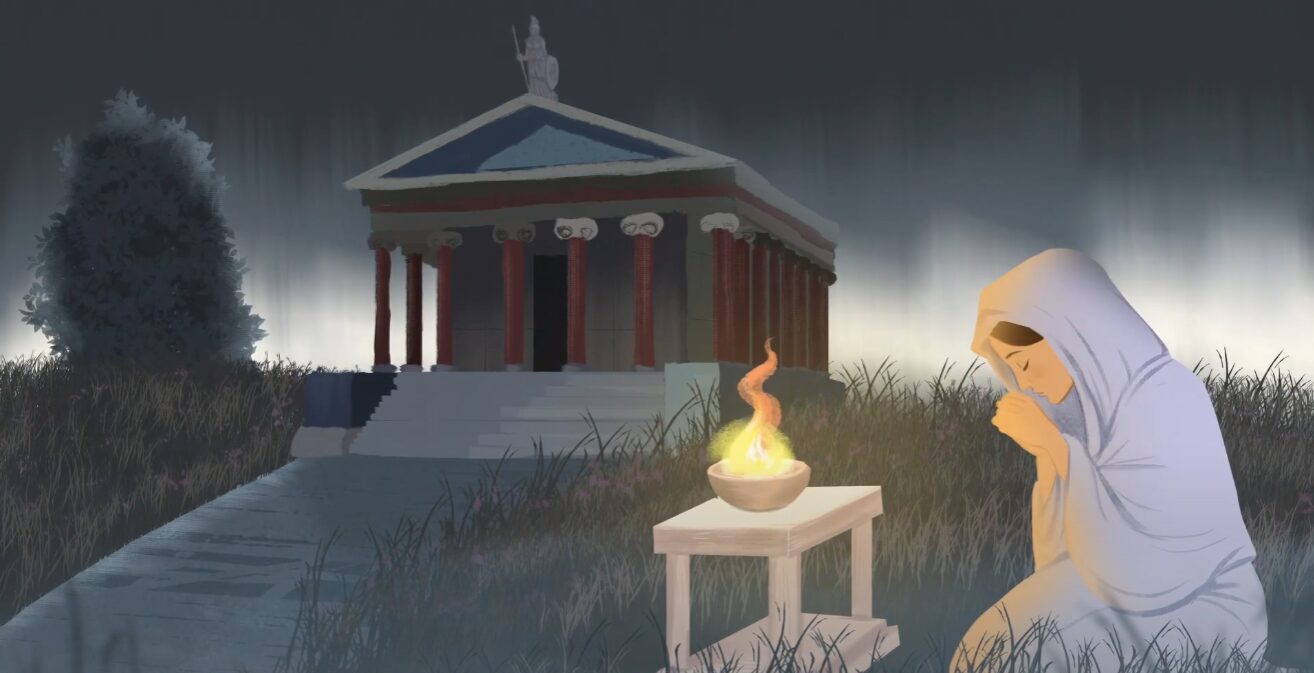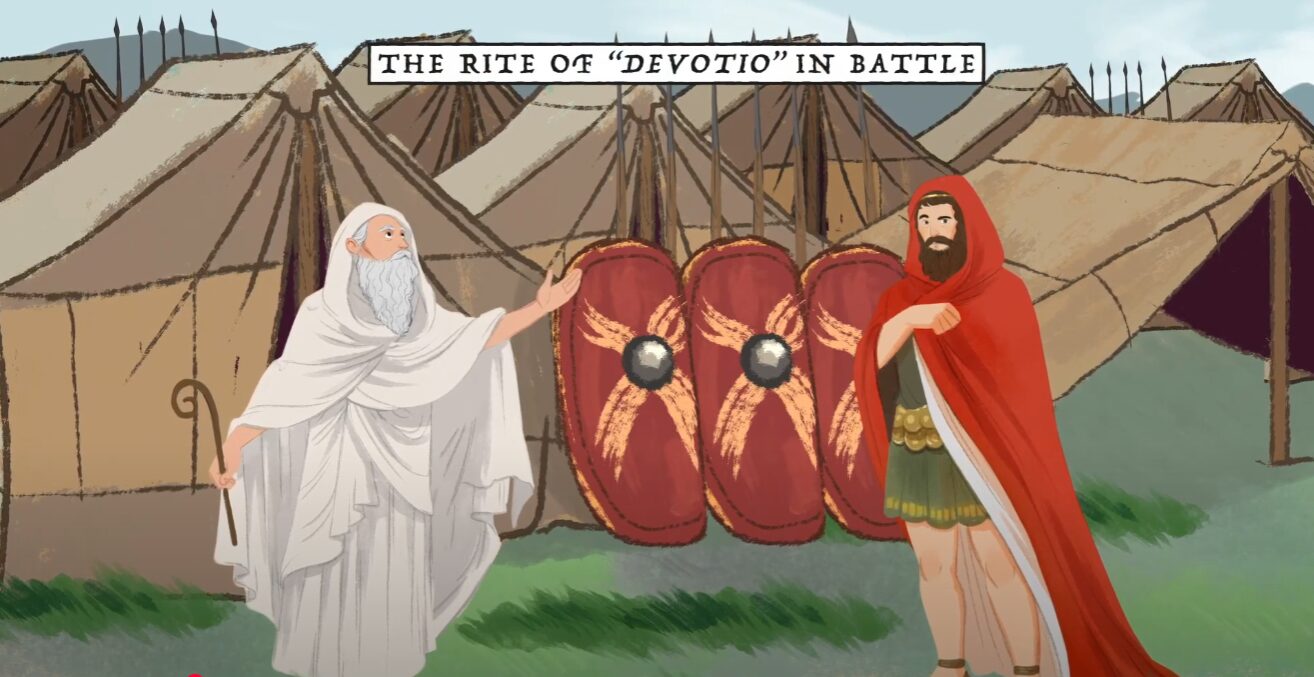Magic in the ancient world was not seen as fiction but as an everyday part of life. People believed that unseen forces shaped their health, their crops, and even the outcome of wars. Rituals, spells, and curses were tools used by both common citizens and leaders, showing how deeply magic was tied to survival and power.
From personal disputes to military campaigns, magic played a role in nearly every part of society. Some used it for protection, others for revenge, and many feared its dangers as much as they relied on its promises. The line between religion and magic often blurred, leaving behind stories and artifacts that reveal how seriously people treated these practices.
Key Takeaways
- Magic was viewed as a real and active force in daily life.
- People used it for personal needs, protection, and conflict.
- Ancient curses provide insight into how communities handled fear and power.
The Reality of Magic in Antiquity
Views and Understandings
People in the ancient world accepted magic as a real force. It explained events that had no clear cause, such as failed crops, sudden deaths, or unusual good fortune. Magic was believed to follow rules, but these were secret and dangerous to record. Even small mistakes in a ritual could cause harm to the user and their community.
Place in Everyday Activities
Magic appeared in many parts of daily life. Farmers used spells for healthy harvests, young people sought love charms, and priests performed rituals tied to oracles. Both commoners and elites relied on magical practices. Roman armies even used rituals like the devotio, where a general sacrificed himself to bring misfortune on the enemy.
Common uses included:
- Agriculture: charms for crops
- Health: healing rituals and protective spells
- Love: potions and enchantments
- War: curses and sacrificial rites
Cases Among Roman Leaders
Even the most powerful figures faced fears of curses. When the general Germanicus died, reports described hidden remains, bloodstained objects, and inscribed tablets found in his home. These discoveries fueled the belief that rivals used dark rituals against him. Such cases show that magic was not only a concern for ordinary people but also for Rome’s elite families and rulers.
| Example | Target | Believed Effect |
|---|---|---|
| Germanicus | Roman general | Death by curse |
| Devotio ritual | Enemy armies | Defeat through sacrificial magic |
Rules and Risks of Ancient Magic
Written Codes and Hidden Knowledge
Ancient magic followed rules, but these rules were rarely written down in detail. Recording them was dangerous, since even a small error could turn a spell against the user. Because of this, most written guides came from priests or magicians, and their accuracy was often debated.
Key points:
- Writing spells carried great risk.
- Only select individuals created spell books.
- Accuracy mattered, but trust in the author varied.
Hazards of Casting Spells
Performing magic was never safe. A single mistake could cause the spell to fail or harm the caster. Even when done correctly, the outcome was uncertain. The forces involved could be unpredictable, leaving the result outside human control.
| Possible Outcome | Effect |
|---|---|
| Spell fails | No result |
| Spell backfires | Harm to caster or community |
| Spell succeeds | Depends on will of higher powers |
Power of Gods and Unseen Beings
Spirits and gods played a central role in whether magic worked. Their choices determined if a spell brought help or disaster. Since these beings were often seen as unpredictable, calling on them was always a gamble.
- Farmers sought blessings for crops.
- Lovers used charms to win affection.
- Armies turned to rituals for victory.
The line between religion and magic often blurred, making divine favor both a source of strength and a constant risk.
Practitioners and Uses of Magic
Kinds of Magic Users
In the ancient world, many different people practiced magic. Witches, shamans, priests, augurs, doctors, and even ordinary citizens all turned to spells and rituals. Some were seen as wise guides, while others were accused of fraud. Their role often depended on how the community judged their success or failure.
| Practitioner | Common Role |
|---|---|
| Witches/Shamans | Healing, curses, protective charms |
| Priests | Rituals, divine invocations |
| Augurs | Reading omens, guiding decisions |
| Doctors | Blending medicine with spells |
| Common folk | Everyday charms for luck, love, or protection |
Everyday and Public Roles of Magic
Magic shaped both private life and public affairs. Farmers used spells to protect crops, while young people bought potions to attract love. Families sought charms for health and protection against curses.
In larger settings, oracles and rituals played an important role in guiding communities. Even military campaigns relied on magical rites. One Roman practice, the devotio, involved a commander sacrificing himself to unleash a curse on the enemy, showing how magic could be tied to strategy and survival.
Blending Faith and the Supernatural
The line between religion and magic was often unclear. Rituals to honor gods could also serve as spells, and divine powers were frequently invoked in magical acts. Communities believed that both blessings and curses came from higher forces, making spiritual practice and magical rites deeply connected.
This overlap meant that temples, healing sites, and sacred springs often became places where people sought both religious favor and magical protection. In many cases, faith and magic worked together rather than standing apart.
Magic in Warfare
The Ritual of Self-Sacrifice
Roman armies sometimes turned to powerful rites when conventional tactics failed. One of the most extreme was a ceremony in which a commander willingly offered his own life to bring ruin upon the enemy. A priest would channel the misfortune of the army into the general, who then charged directly into opposing ranks. His death was believed to unleash the curse, crippling the hostile force.
Key features of the ritual:
- Performed by: High priest and Roman general
- Purpose: Transfer ill fortune to the enemy
- Outcome: Commander dies in battle, enemy suffers defeat
- Historical note: Accounts record that victories followed each use of this rite
Influence on Battle Planning
The belief in such rites shaped how armies prepared for combat. Opponents who knew of the practice took steps to counter it. For example, when facing Rome, King Pyrrhus instructed his men to restrain but not kill any Roman commander who attempted a suicidal charge.
This shows how magic, whether real or not, affected military thinking. Commanders had to consider not only weapons and formations but also rituals and curses. In this way, spiritual practices became a part of battlefield strategy alongside traditional tactics.
Curses in the Ancient World
Common Use and Everyday Access
Curses were among the most widespread forms of magic in the ancient world. People from different walks of life—farmers, soldiers, priests, and ordinary townsfolk—turned to them. Lead tablets inscribed with curses have been uncovered across the Mediterranean, showing how deeply ingrained they were in daily life.
These curses could target rivals, thieves, or even entire armies. Their appeal came from their accessibility: unlike more complex rituals, curses could be performed by almost anyone with basic knowledge of the words and materials.
Examples of who used curses:
- Farmers protecting crops
- Lovers seeking affection
- Soldiers hoping to weaken enemies
- Citizens retaliating against theft
Rules, Bans, and Social Reactions
Communities did not ignore the dangers of curses. Legal codes sometimes tried to restrict their use. In Rome, the earliest laws, known as the Twelve Tables, included bans on harmful spells. Despite these measures, people continued to rely on curses, often in secret.
Authorities feared curses because they blurred the line between personal disputes and supernatural harm. Even powerful figures, including generals and emperors, could be suspected victims of such attacks.
Defenses and Counter-Spells
Because curses were so common, people also developed ways to protect themselves. Protective rituals, prayers, and offerings were used to block hostile magic. Many believed that invoking the favor of gods or spirits could shield them from harm.
At times, individuals wrote their own counter-curses to reverse the harm back onto the aggressor. Others turned to sacred spaces, such as temples or healing springs, to seek divine protection.
| Method | Purpose |
|---|---|
| Protective prayers | Appease gods for safety |
| Ritual offerings | Gain favor from divine powers |
| Counter-curses | Redirect harm to the offender |
| Sacred sites and rituals | Strengthen defenses against magic |
Case Study: The Malediction of Solinus
At the hot springs of Britannia, a man named Solinus sought relief from years of labor. After bathing in the healing waters, he felt renewed and ready to leave. But when he returned to the dressing room, his new tunic and cloak had vanished.
The theft forced him to walk home in only sandals, exposed to the cold and the mockery of onlookers. Each step deepened his anger until he resolved to act. That night, he turned to a common tool of the time: a curse tablet.
Solinus inscribed his plea on lead, addressing the goddess Sulis Minerva. He demanded that the thief—whether man or woman, slave or free—be denied rest and health until the stolen garments were returned.
Key details of the curse:
| Item Lost | Deity Invoked | Target of Curse | Desired Punishment |
|---|---|---|---|
| Tunic and cloak | Sulis Minerva | Unknown thief | No sleep, no health |
This example shows how ordinary people used curses not only for revenge but also as a way to seek divine justice when no other remedy seemed possible.
Conclusion
Magic in the ancient world was not hidden in secrecy but lived openly among everyday people. It shaped how they explained misfortune, illness, and even success. From farmers seeking healthy crops to rulers fearing curses, belief in these forces influenced every level of society.
Practices varied widely, ranging from protective rituals to dangerous invocations. Curses were especially common, often etched onto lead tablets and left at sacred sites. These objects carried requests to the gods or spirits, calling for justice or revenge against wrongdoers.
The risks of using such powers were well known. A single mistake in a spell could harm the caster instead of the target. Even when performed correctly, the outcome depended on unpredictable gods or spirits.
| Type of User | Purpose of Magic | Example Use Case |
|---|---|---|
| Farmers | Secure good harvests | Crop protection rituals |
| Youth | Influence love and attraction | Love potions |
| Priests/Shamans | Ritual and spiritual authority | Oracles, healing rites |
| Soldiers/Armies | Gain advantage in battle | Devotio ritual |
| Common Citizens | Personal justice or revenge | Curse tablets |
These practices blurred the line between religion and magic. Whether seen as sacred or dangerous, they remained a constant presence in daily life.



